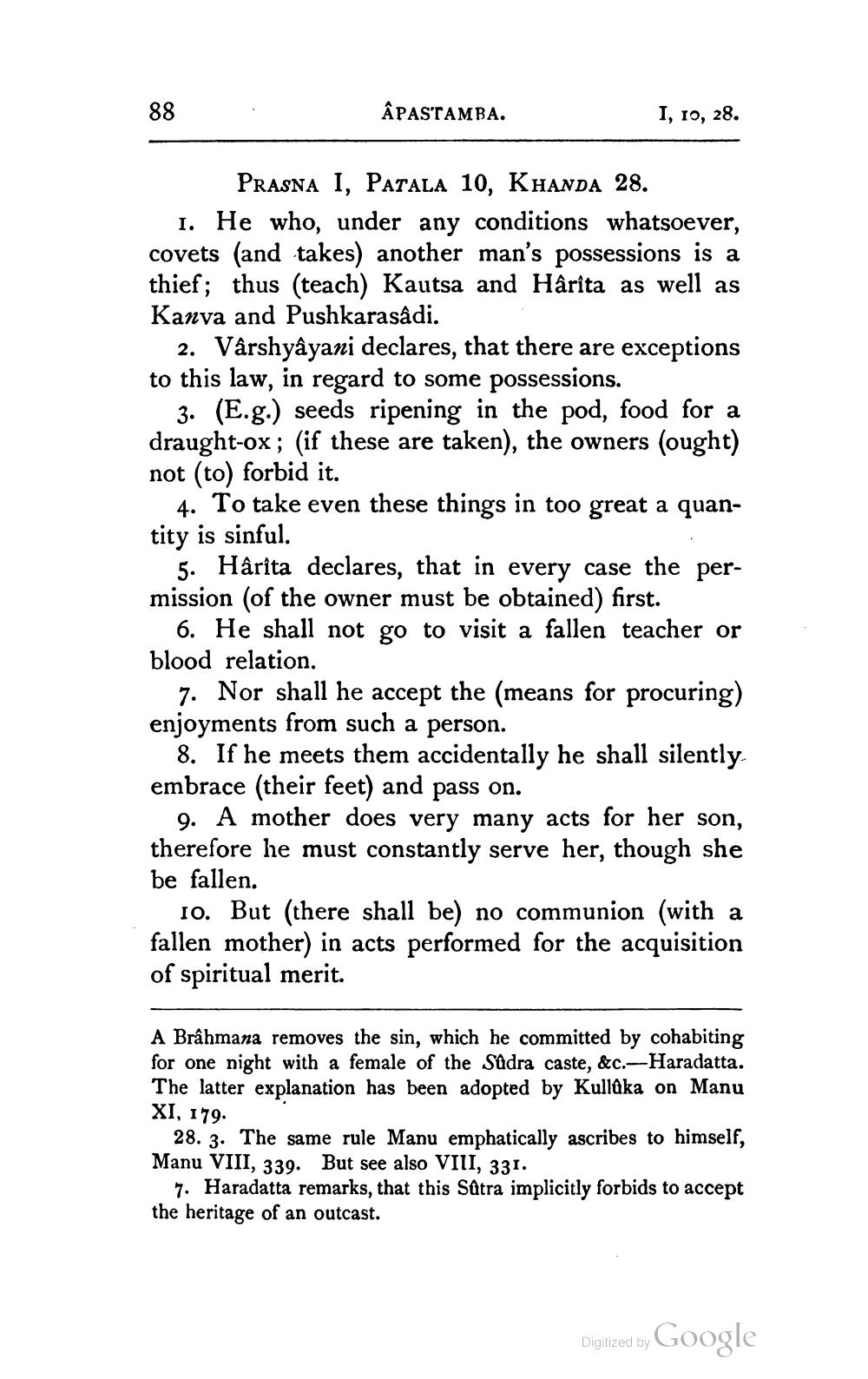________________
88
ÂPASTAMBA.
I, 10, 28.
PRASNA I, PATALA 10, KHANDA 28.
1. He who, under any conditions whatsoever, covets (and takes) another man's possessions is a thief; thus (teach) Kautsa and Hârîta as well as Kanva and Pushkarasâdi.
2. Vârshyâyani declares, that there are exceptions to this law, in regard to some possessions.
3. (E.g.) seeds ripening in the pod, food for a draught-ox; (if these are taken), the owners (ought) not (to) forbid it.
4. To take even these things in too great a quantity is sinful.
5. Hârita declares, that in every case the permission (of the owner must be obtained) first.
6. He shall not go to visit a fallen teacher or blood relation.
7. Nor shall he accept the (means for procuring) enjoyments from such a person.
8. If he meets them accidentally he shall silently embrace (their feet) and pass on.
9. A mother does very many acts for her son, therefore he must constantly serve her, though she be fallen.
10. But (there shall be) no communion (with a fallen mother) in acts performed for the acquisition of spiritual merit.
A Brahmana removes the sin, which he committed by cohabiting for one night with a female of the Sudra caste, &c.--Haradatta. The latter explanation has been adopted by Kulluka on Manu XI, 179.
28. 3. The same rule Manu emphatically ascribes to himself, Manu VIII, 339. But see also VIII, 331.
7. Haradatta remarks, that this Sûtra implicitly forbids to accept the heritage of an outcast.
Digitized by Google




